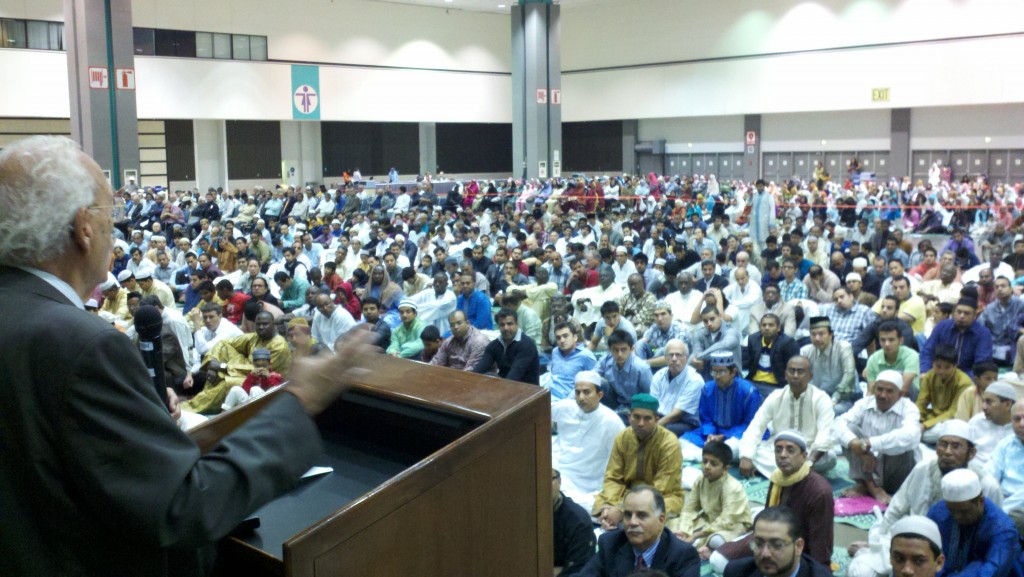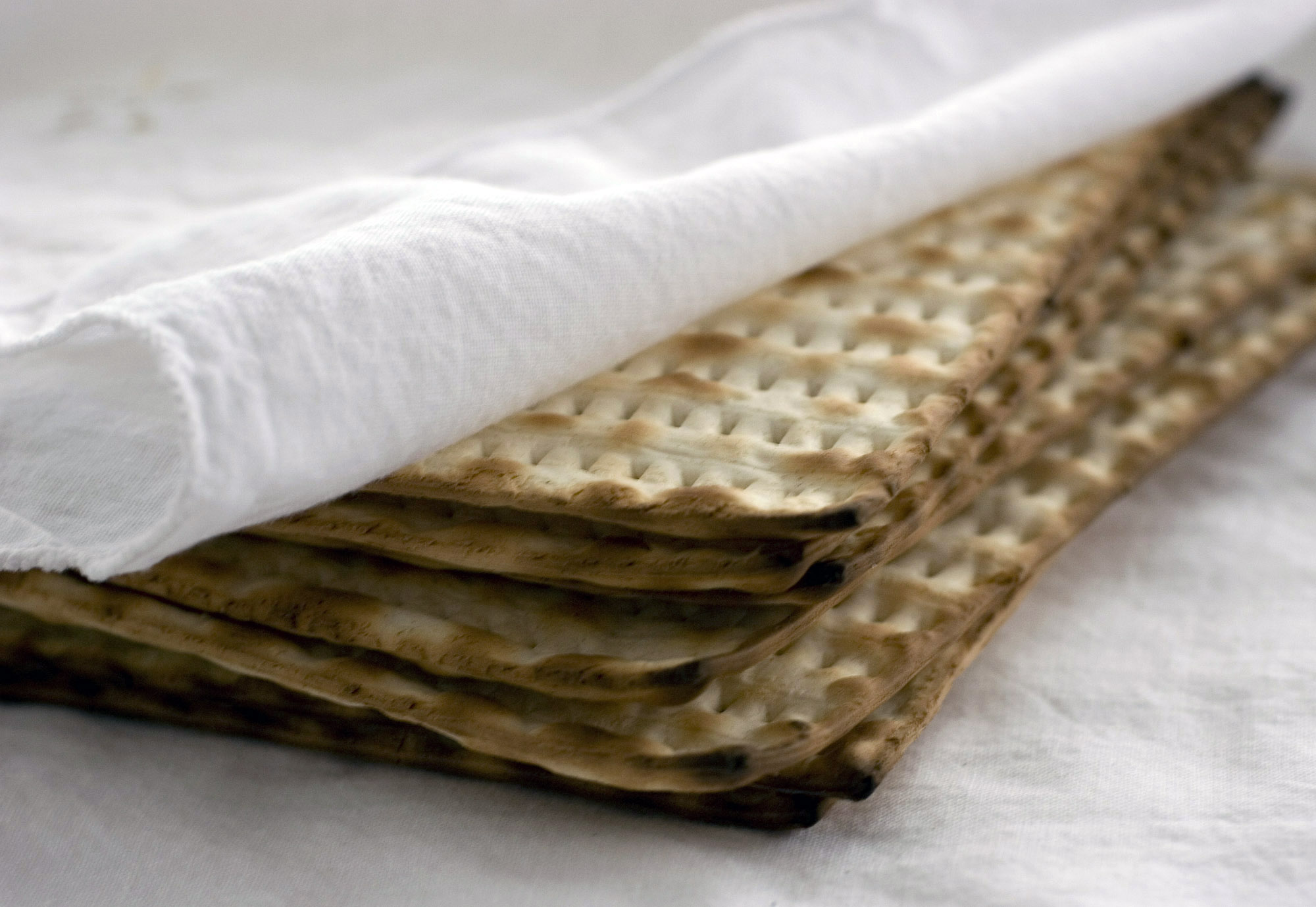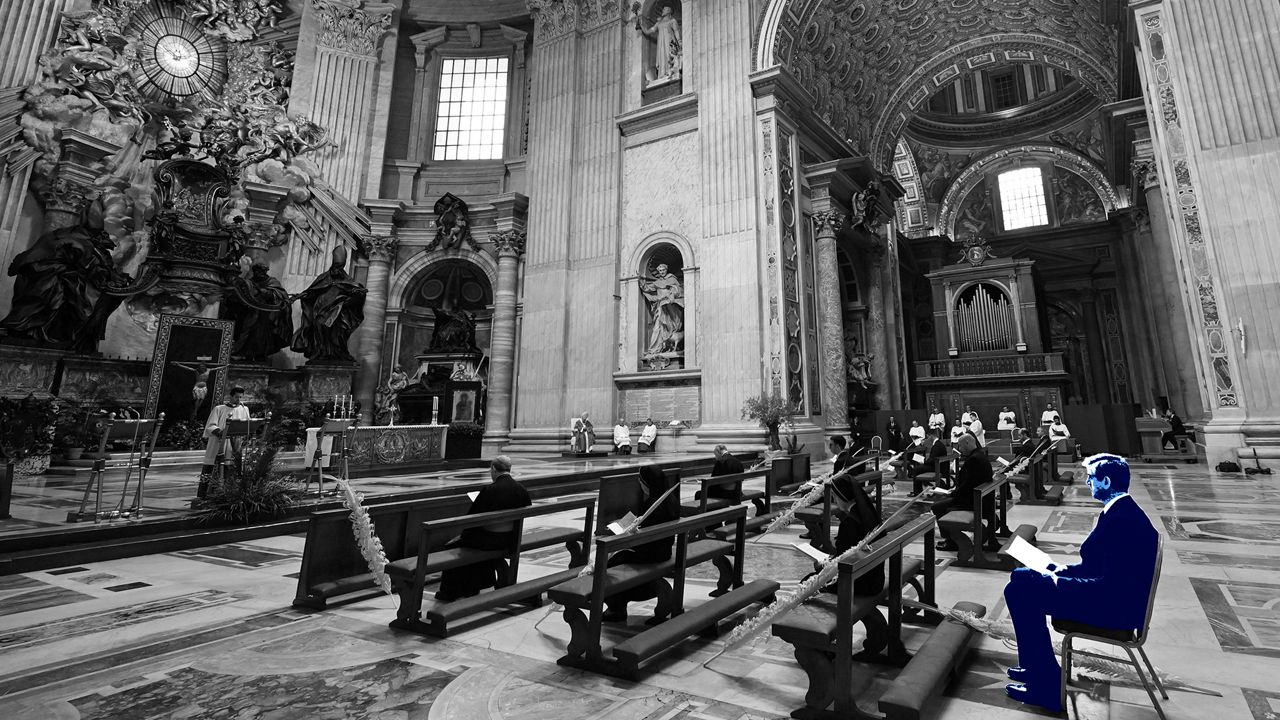When I last saw Rabbi Amichai Lau-Lavie six months ago, he was chanting a prayer on Yom Kippur, the Jewish Day of Atonement.
“How many shall pass away and how many shall be born
Who shall live and who shall die.”
...
“Who by famine and who by thirst
Who by earthquake and who by plague.”
“I've been thinking of that,” he agreed when we talked this week in advance of Passover, which starts Wednesday. “And I know when we gather again for Yom Kippur, six months from now, nothing's going to be the same.”
A day later, he emailed. This new plague had claimed a congregant, “a dear soul.”
If there’s a divine message to April, it’s not subtle.
It’s not just Passover upon us. There’s Good Friday and Easter Sunday, followed by Orthodox Easter a week after, followed, by a fluke of timing, with Ramadan, Islam’s holiest month.
They come precisely as the deadliest pandemic in a century crests in our country.
Normally, these are times for big meals and packed pews, to say nothing of picnics and baseball games for believers and non-believers alike.
Now, the Pope is virtual — and virtually alone — praying for us. On Palm Sunday, Christians traded houseplants for the palm fronds they’d usually get at church.
And when he wasn’t looking for supermarkets that deliver matzoh, Lau-Lavie and his team (whose High Holiday services, in full disclosure, I attend) crafted a Zoom-friendly packet for seder in quarantine.
"I am of the opinion that let's make the most out of this.” he said.
But can those celebrating, and even those who are not, find meaning in these holy days, amid so much that drains our spirits?
Can we find it alone in our quarantine? Can we find it in a dinner for one or two, with relatives and clergy relegated to pixels?
How can we expect to find God when we can’t even find the unmute button on Zoom?
I don’t come bearing answers. No salvation here. I just offer musings, aided by leaders of three religions. Possible balms, not prophecies.
“Fear not,” advised Linda Bryan, associate minister at Christian Faith Baptist Church in Raleigh, NC. She was echoing the words the Bible says Jesus spoke when disciples encountered him resurrected on Easter, after his Good Friday crucifixion.
“In the season when fear and panic is rampant, still those precious words of 'fear not'.”
“This is preeminent. It rises to the surface,” said Bryan, an associate professor of missions and ministry at Shaw University Divinity School.

An Eid al-Fitr celebration in Los Angeles in a previous year. (Omar Ricci, Islamic Center of Southern California)
Ramadan, which starts April 23, is known as a time of self-denial — no food or drink during daytime. But the nighttime break-fasts, called iftars, are joyful, delicious gatherings. There are now plans for a totally virtual program, with recitation and talks on FaceBook and YouTube.
Typically, the Islamic Center of Southern California rents out the Los Angeles Convention Center so thousands together can mark Ramadan’s end, called Eid al-Fitr. That’s scrapped.
“This has been a very humbling experience," said Omar Ricci, a Center spokesperson. “It was just taken for granted that you could go to the mosque, or you could gather with people.”
Having faith.
Embracing humility.
And, Lau-Lavie says, another lesson: learning empathy.
“We know that this virus does not differentiate black, white, rich, poor, old, young necessarily, but we know that society does,” he said. “So the most vulnerable, the more poor, are more prone to get infected because they can't afford social distancing.”
The seder is already chockablock with enduring edible symbolism of slavery and freedom, from relish symbolizing mortar for bricks to green sprigs of spring dipped in salt water for tears.

Matzo is a staple at all seders. The unleavened bread reminds those at the seder that their ancestors did not have time to let their bread rise before fleeing Egypt. (AP)
Then there’s matzoh, the bread hurriedly prepared as Israelites fled into the desert.
It’s called “the bread of affliction” and in cheerier times is the ingredients for many gastrointestinal jokes around the seder table.
This year, it and other rituals we observe in quarantine could be grist for contemplation about the past, and the future. What does this virus say about the world we created? And what world do we want to enter when we can freely leave our four walls, when the virus ebbs (which, dear friends, it will).
Do we want it to recreate it, with all its excesses and pollution, as if this was all a phantom?
For all its blandness, matzoh may be the perfect metaphor for a moment of reflection and promise. After all, Lau-Lavie reminds me, it wasn’t just the bread of affliction, the foodstuff eaten in slavery, but what the Israelites ate in their first moments of freedom.
Sanity Clause
Open-air shopping. Get your groceries as efficiently as you can, for certain. But if doable, a trip to the farmer’s market is nourishing in many ways. You very well may be supporting a local independent business; your vegetables are liable to be really fresh; you can worry (a little) less about being inside; you can be outside for that much longer.
Trapped Parent Tip
Honesty. The last thing I want is to be preachy, particularly after a column about religion. But I long ago found it impossible to keep the kids away from the heartaches and uncertainties this has unleashed. The agenda now is loving honesty about what we do, and don’t, know.



